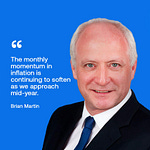South Korea’s President declares martial law, accusing opposition parties of plotting with North Korea. The Korean won slumps. Elsewhere, Australian GDP figures today are set to show a re-acceleration of growth.
In part two of a bonus Deep Dive interview on Asian currencies across 2025, ANZ’s Head of Asia Research Khoon Goh analyses which export-dependent economies are most at risk from trade disruptions.
5 things to know:
South Korea’s President Yoon Suk Yeol declared martial law in South Korea for the first time since 1980 in a shock TV address overnight. He said the opposition parties that currently control the Parliament were conspiring with North Korea. The leader of the Opposition Lee Jae-myung called on South Korean citizens to gather at the Parliament buildings and warned the return of martial law would collapse the economy. Both Yoon’s own ruling party and the Opposition then voted in Parliament to overturn martial law, which the constitution allows.
The South Korean Won slumped 2.6% on the news to a two-year low, but retraced some of those losses after the Bank of Korea said it was considering intervening. South Korean stocks listed in the US fell as much 6%. ANZ Economist Bansi Madhavani sees the crisis as domestic and unlikely to spill over into other markets globally, other than safe haven buying of US Treasuries.
The final partial indicators for Australia’s Q3 GDP tugged in different directions, says ANZ Senior Economist Adelaide Timbrell, leaving ANZ Research’s Q3 growth forecast unchanged at 0.5%, driven by the July tax cuts & public demand.
Those July tax cuts are also contributing to higher ANZ Roy Morgan Consumer Confidence. It rose 2.7 points last week to 88.4. ANZ Economist Sophia Angala says that’s its highest reading since May 2022.
South Korea’s inflation ticked up to 1.5% in the year to November, below expectations for 1.7% as food price growth came in weaker than expected. Speaking before the declaration of martial law, ANZ Economist Krystal Tan says a weakening currency may put upward pressure on inflation.
Cheers
Bernard
PS: Catch you tomorrow with what Australia’s Q3 GDP data could mean for the RBA’s rate cut start date.












